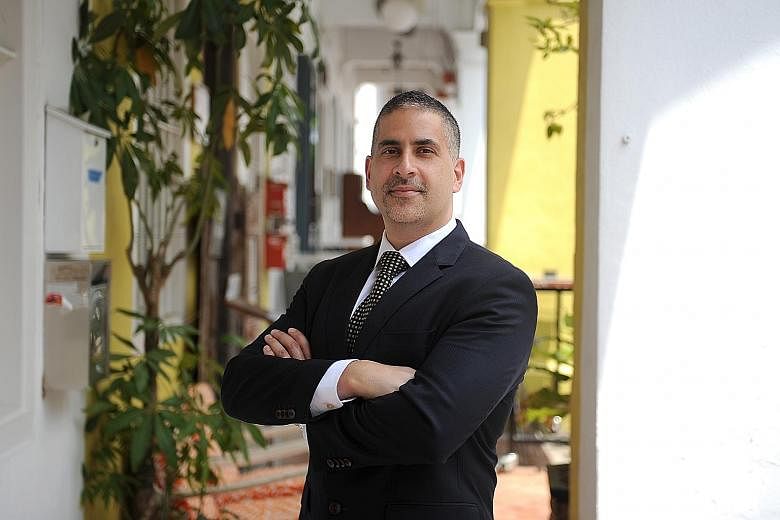Biotech is known to be a trying industry, where drug-makers can wait over a decade and burn millions of dollars before they see their products hit the market.
But one local outfit has made rapid progress.
Aslan Pharmaceuticals was set up in Singapore in 2010 and has made steady progress since then, said chief executive Carl Firth, who quit his job at Merrill Lynch to start the company.
The firm announced today that it has sealed a deal to license a new antibody from the Agency for Science, Technology and Research's (A*Star) p53 Laboratory in the hot new area of immunotherapy.
"Immuno-oncology has been around for less than five years, but it is literally transforming the way that we think about cancer now," Dr Firth told The Straits Times.
Unlike chemotherapy, immunotherapy harnesses the power of the body's immune system to fight cancer. Only a handful of drugs have been approved in this space, such as Opdivo from Bristol-Myers Squibb and Keytruda from Merck. Analysts say that the immunotherapy market may one day ring up billions in revenue a year.
The molecule that Aslan is licensing from A*Star is a kind of drug known as a "checkpoint inhibitor".
In this case, the checkpoint is RON, a molecule inside human cells that cancer tumours communicate with. More than half of all cancer tumours secrete substances that bind to RON, essentially disabling the body's immune system so that the tumours take over.
The new drug acts as an inhibitor, blocking RON so that the tumours cannot get to it and, hopefully, trigger an immune response, said Dr Firth.
The molecule developed by A*Star's lab is in pre-clinical development. As part of the deal, the lab will continue to optimise the antibody so that it binds better to RON and works more efficiently as a drug.
Once that is done, Aslan plans to start clinical studies in 2018.
Taking a drug from clinical development to market typically takes up to seven years, but Dr Firth, who holds a PhD in molecular biology and spent 10 years at drug giant AstraZeneca, hopes he can fast-track the process by focusing commercialisation on rarer cancers, like gastric or liver cancer, as researchers can opt for smaller clinical studies.
"The record for the industry was around three to four years to get to the clinic. That's very fast," he said.
With the new A*Star deal, Aslan, which employs 36 people, has a portfolio of five drugs in various stages of development. Its lead drug, Varlitinib, was licensed from Array BioPharma and is in phase-two trials. Dr Firth expects to file for regulatory approval for Varlitinib in two to three years, under a best-case scenario.
But for the next two years at least, Aslan's revenues will come mainly from licensing agreements.
Last month, it made US$10 million (S$13.6 million) in revenue by letting Bristol-Myers Squibb reacquire the rights to another checkpoint inhibitor, which it originally licensed from the drug-maker in November 2011.
Aslan has spent just US$60 million from when it licensed its first drug in 2011 until today. The company does not own labs of its own. Rather, it acquires drugs that are in development and forms partnerships with contract research firms and manufacturers to turn these into commercial propositions.
The company is in talks with another local research institution to license an early-stage drug, and is gunning for a public listing in Taiwan early next year. In July, Aslan raised US$23 million in a pre-initial public offering financing round, and has raised over US$100 million.


